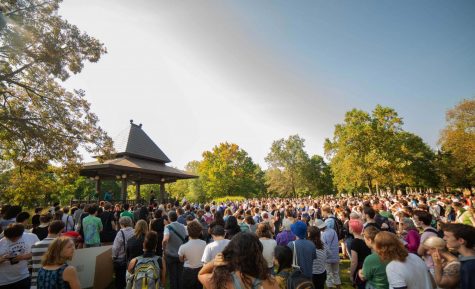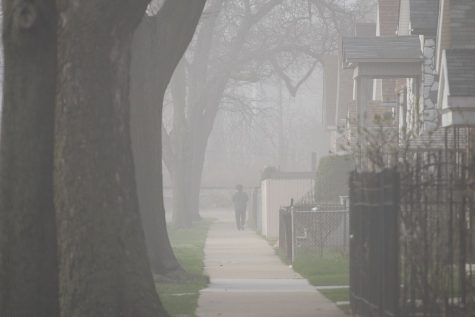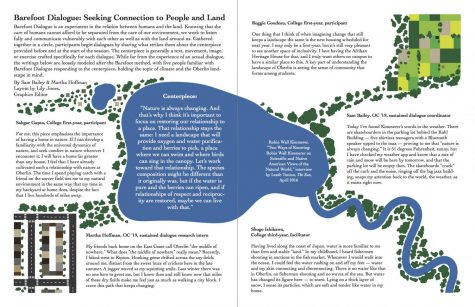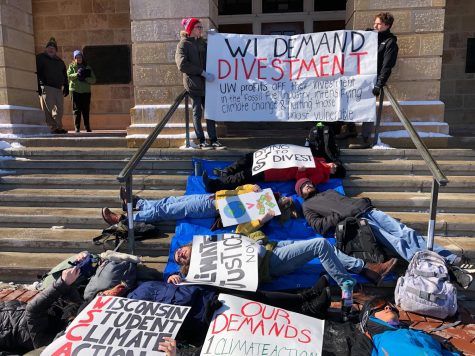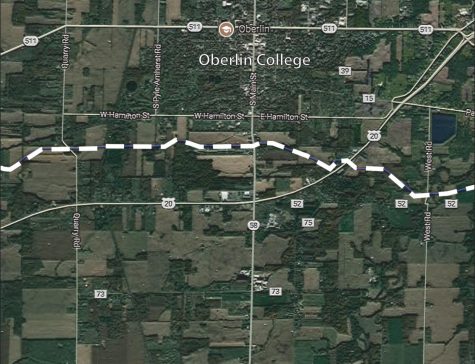“Don’t Frack With Us:” How to Stop a Pipeline
After staunchly opposing the construction of a pipeline through their community, some people will agree to settle and concede the fight while others take to the trees, putting their bodies on the line to stop the destruction of their land. What informs these different responses and why can they look so different for different people?
Pondering these questions as I reflected on the anti-pipeline organizing I have been involved in throughout my four years at Oberlin, I decided to do some research that later grew into a year-long senior thesis. Over the past six months, I have interviewed organizers battling two different pipelines: one in Appalachia, the other in the Rust Belt. Both groups fought hard to prevent the pipelines from being sanctioned. But once both pipelines received their inevitable approval from the rubber-stamping Federal Energy Regulatory Commission, the Rust Belt camp all but stopped fighting, while the Appalachian group’s struggle continued.
The truth is, if organizers recognize the problem of natural gas pipelines as rooted in larger systems of capitalism, colonialism, and patriarchy, rather than as simply a problem of regulatory inadequacy, they become more willing to fight both inside and outside of courts and regulatory agency processes. The Rust Belt camp largely played it safe and mostly fought within legal and regulatory means; though they put up important resistance, it was not enough to slow construction or stop it from being put in the ground.
On the other hand, the Appalachian camp has implemented a huge direct-action effort that also engages with larger systemic issues. This approach has been essential to delaying construction long enough that nonprofits and grassroots groups can keep working within the legal system to get construction permits revoked. The fact that the pipeline has not been completed two years after construction began, as one organizer put it, “is an amazing win.” Illegality, it seems, is necessary for the legal and regulatory system to operate as organizers believe it is “supposed to.”
In the Rust Belt camp, opposing this pipeline was the first organizing experience for many, and the group did not have the oral histories of subversion and resistance that many Appalachian folks carry with them. Appalachian organizers built resistance strategies that allowed for a variety of actions depending on individuals’ comfort levels, from baseline water testing and submitting public comments, to shutting down agency meetings and blocking excavators with their bodies — all while still supporting a common goal. The Appalachian camp has also created a community — one of folks who show up for each other, who feed each other, who make music together, and who create alternative systems of mutual aid. Organizers have found common ground and built community, in part because of preexisting networks in a place with a deeply-rooted history of resistance.
I asked organizers from both fights to define what success means to them in this effort. The Rust Belt camp was mostly focused on stopping the pipeline, or at least rerouting it, and educating localities along the way. The Appalachian camp, looking down the road to sustain activists for years, usually had an answer that boiled down to “carrying on to the next fight.” Facing the crisis of one fracked gas pipeline, they used that space to create a movement for so much more — a Green New Deal, climate justice, regulatory reform, and building a coalition of people who share the same passions. This is why they have remained in the metaphorical trees, rather than accepting what Rust Belt organizers have deemed an inevitable fate.
I am writing this article as Oberlin prepares to shut down campus for the semester due to community spread of COVID-19. I am thinking about the climate crisis, the global pandemic, and all of the other disasters facing our world. I am reminded of what I have spent years learning here at Oberlin: as Naomi Klein puts it: “the ‘shock doctrine’ allows the system to use our disorientation and fear to push through radical pro-corporate and unjust measures that punish marginalized folks.”
Whether we are tackling pipelines or a virus that endangers millions of people, we must not give into this fear. We are not isolated and alone. As the organizers I have talked to have taught me, our survival requires our shared humanity and community. We have to build something better together.


